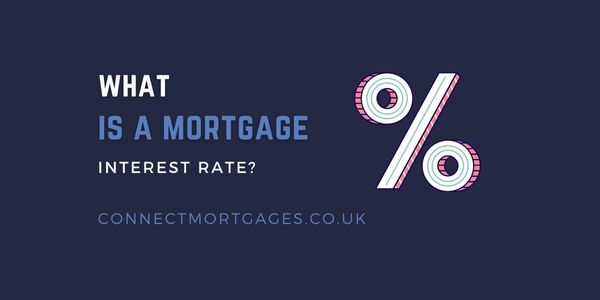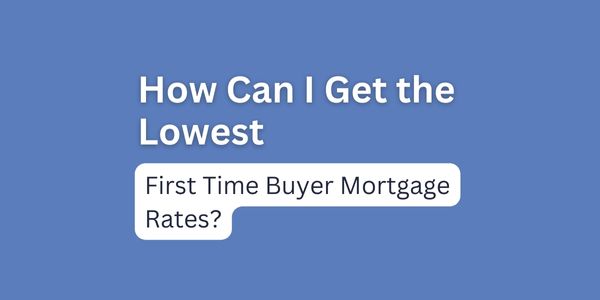Are you considering purchasing your first home? Congratulations! It is an exciting and monumental milestone. However, before buying a house, you must understand mortgage rates for first-time buyers. Various factors go into first-time buyer mortgage rates, from credit score requirements to deposit needed. This article will explore the key elements when comparing first-time buyer mortgage rates. Prepare to make an informed decision and take the first step toward homeownership.
What is a mortgage?
When you take out a mortgage, you agree with your lender, allowing them to repossess your property if the borrower fails to repay it. Whether purchasing a new home or remortgaging.
A process determines how much money you’re eligible for and what kind of interest rate you’ll receive; lenders consider your credit score, debt-to-income ratio, deposit size, loan terms, and more.
How Do First-Time Buyer Mortgage Rates Work?
A borrower’s interest rate is one of the most important things to consider when buying a home with a mortgage. Interest is charged on every pound you borrow, so the higher the rate, the more you’ll pay back.
Therefore, it is essential to understand mortgage interest rates, how they are calculated and charged, and factors that can influence your offered rate.
The same factors determine first-time buyer mortgage rates as regular mortgages. That said, a fixed-rate mortgage is ideal for first-time buyers as the borrower will pay the same amount every month for the length of the deal. It also means that you would be fine if rates were to go up.
Another popular option for first-time buyers is a tracker mortgage. These are usually lower than fixed-rate mortgages, but because they track the Bank of England Base Rate, your payments could increase or decrease throughout the period of the rate.
The cheapest rates available to a first-time buyer depend on various facets. The rate you will pay on your mortgage is subject to the following considerations:
- The Bank of England’s interest rate
- The lender you choose
- The size of the deposit you put down
- The type of repayment you choose
- The way you pay back your interest
The above will collectively determine the total you pay back, the annual percentage rate charge or APRC.
What Is a Mortgage Interest Rate?

When seeking a mortgage loan, it’s essential to comprehend the monthly payments you’ll make and how modifications to interest rates may affect these repayments.
A mortgage rate of interest is a percentage fee the lender charges—this serves as their charge for lending money (in addition to any other applicable fees).
In that sense, considering your estimated mortgage repayment costs before selecting an offer is crucial.
The interest rate will differ due to various factors, for example:
- Amount borrowed
- Deposit amount
- Type of mortgage
- Lender offers or deals
How Does Mortgage Interest Work?
Typically, mortgage interest rates depend on the Bank of England’s (BOE) base rate. Suppose you have a tracker mortgage that is 1% higher than the base rate; if it stands at 1%, your interest will be 2%.
As the BOE increases this measure, your payments rise as well. Each lender has its own benchmark rate, which follows the BOE’s guidelines.
Fixed-rate and interest-only mortgages will also incorporate the Bank of England’s base rate, which will be reflected in the mortgage rates available.
What Factors Should I Consider When Comparing Different Mortgage Rates?
When comparing different mortgage rates, there are several factors you should consider:
- Consider the type of mortgage that would best meet your needs. For example, do you need a fixed-rate or base-rate tracker loan? Have you got enough of a deposit?
- Compare interest rates and APRs (annual percentage rates) to find the best deal.
- Consider other fees associated with certain mortgages, such as application or processing fees, arrangement fees and conveyancing fees.
- Look for lenders who offer special products for first-time buyers and criteria that suit your circumstances.
By researching different types of mortgages and comparing first-time buyer mortgage rates, you can find the loan option that best fits your financial situation and take the first step toward homeownership.
How Do I Know if a Mortgage Rate Is Right for Me?
When finding the correct mortgage rate for you, it’s essential to research and compare rates from different lenders. Make sure you understand the terms associated with each loan option to make an informed decision.
It is also essential to determine how long you plan to stay in your home and how much you can afford to spend each month.
Before committing to a loan, make sure that the rate is one you can live with over the loan’s lifetime.
Finally, with some research or consulting a broker, you can find the correct mortgage rate that works best for your budget and lifestyle.
How Can I Get the Lowest First Time Buyer Mortgage Rates?

If you’re a first-time home buyer, one of the best ways to get the lowest mortgage rates is to shop around and compare different lenders.
By looking at various offers and researching interest rates and fees related to each loan option, you can find the lender offering the lowest rate for your financial situation.
When applying for your first mortgage, it’s also essential to have a good credit score and a reliable income source.
Lenders will consider your financial background to determine how much they are willing to lend, so having a healthy credit score can help you get the best rate possible.
It’s generally best to save up a sizeable deposit, as this can also help you get the lowest rates.
Speaking with a knowledgeable mortgage broker or lender with experience helping first-time home buyers get the best rate for their specific needs is essential.
A reputable broker or lender can provide personalised advice and guidance to help you find the right mortgage for your situation.
With their expertise, you can find a loan that fits your budget and get the lowest rate possible.
What Other Costs Might Be Associated with Getting a First-Time Buyer Mortgage Rate?
When applying for a first-time buyer mortgage rate, you should also know other costs associated with the loan. These could include application fees, valuation fees, lenders and brokers fees, conveyancing fees, insurance, and more.
Consider the ongoing mortgage costs, such as insurance, ground rent on leasehold properties and other service charges. Understanding all the associated costs before you commit to any loan will help ensure you don’t get into a situation where you cannot make your payments.
Is it possible to change my First-time Buyer mortgage rate later on?
Yes, changing your first-time buyer mortgage rate is possible later. Depending on the terms of your loan and current market conditions, you can refinance your loan for a lower interest rate or switch from a fixed-rate to a base-rate tracker mortgage.
However, it’s important to note that refinancing your loan can come with additional costs and fees, so it’s essential to carefully consider all the potential implications before deciding.
First-time buyers should carefully consider their finances and research all available options before securing a mortgage.
Shopping around for the best deal and understanding the associated costs of a loan will help ensure that you get the best possible rate for your particular situation.
You can find a loan that fits your budget and lifestyle needs with the right lender.
With some knowledge and preparation, first-time buyers can confidently secure the right mortgage for them.
Thank you for reading our publication “First Time Buyer Mortgage Rates | Best New Mortgage Rates.” Stay “Connect“-ed for more updates soon!







